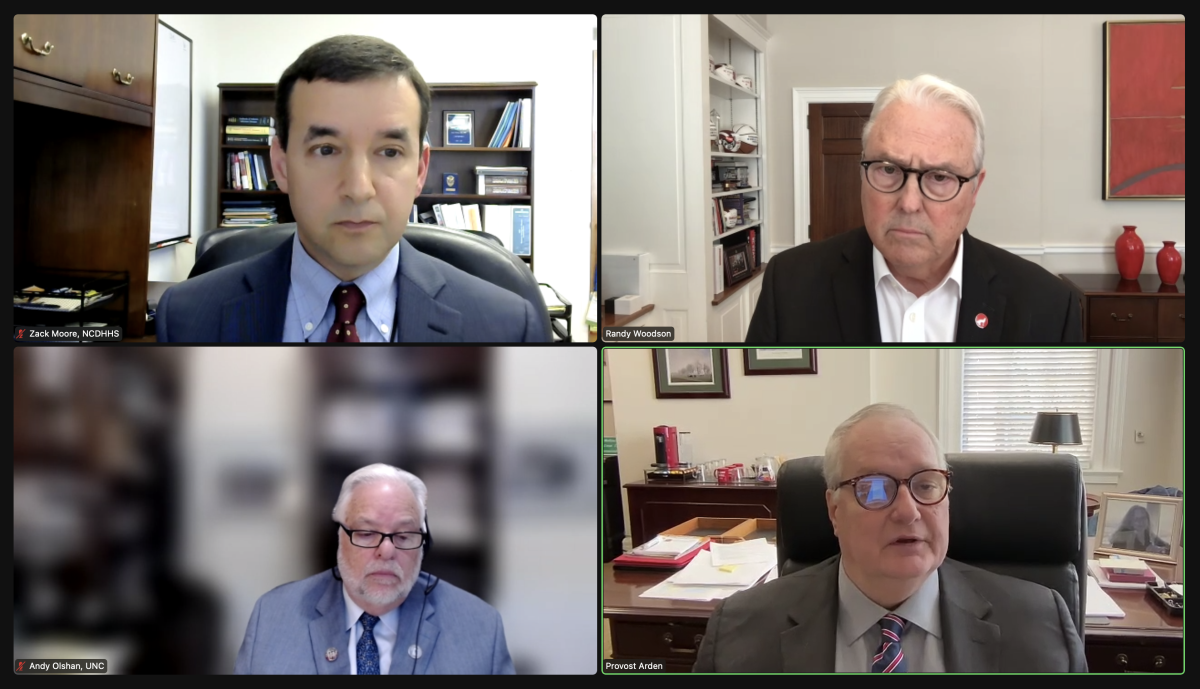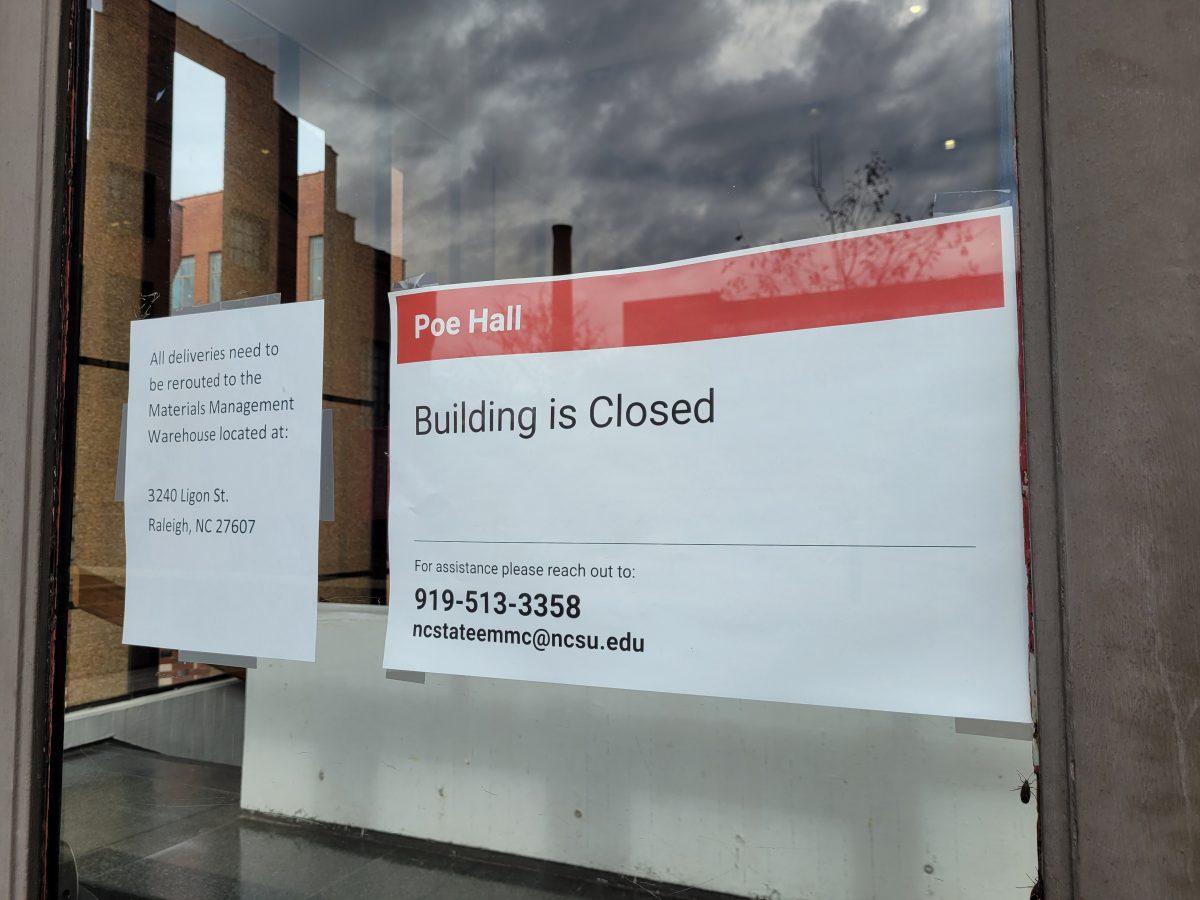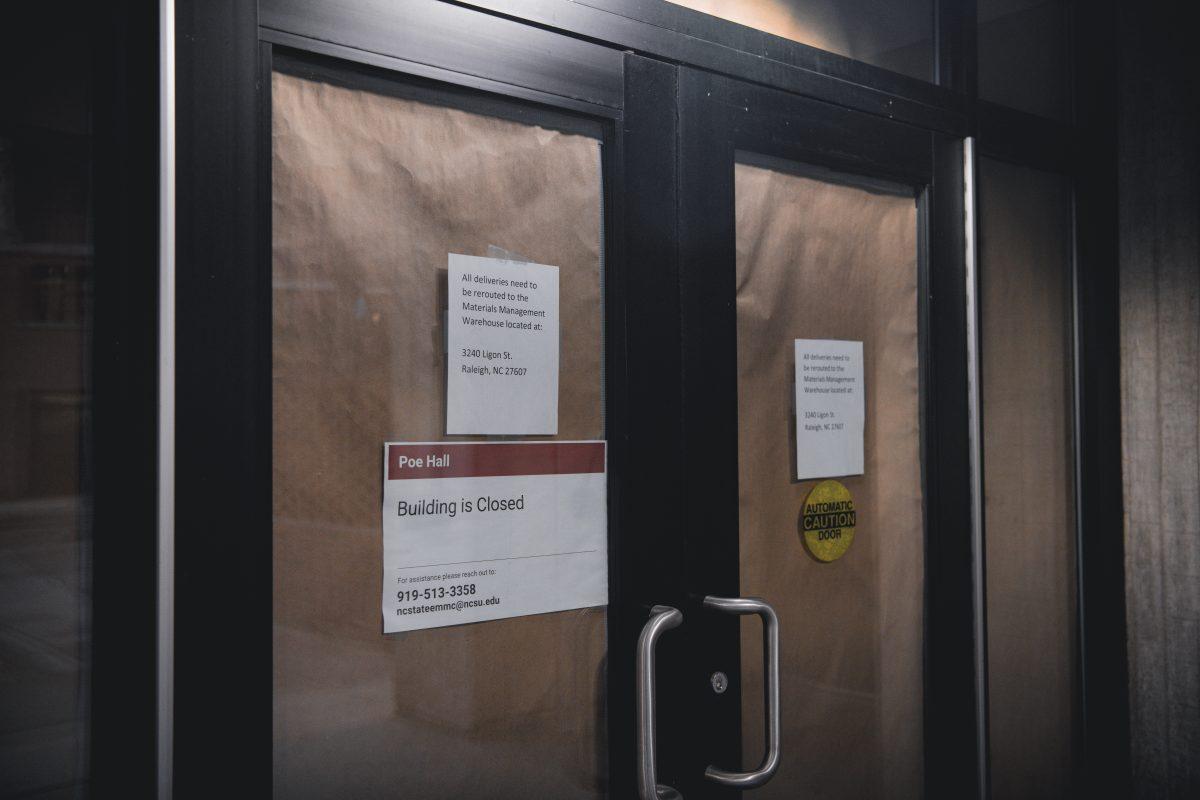The second phase of Poe Hall environmental testing is underway, Chancellor Randy Woodson said Monday. But even once there’s stronger certainty about the nature of PCB contamination in Poe Hall, two experts cautioned that understanding its health consequences is another looming undertaking.
It’s now been about four months since NC State closed Poe Hall to investigate the presence of PCBs, which are chemicals linked to cancer, in the seven-story building that once housed thousands of students, staff and faculty.
Of particular concern to some — including members of NC State’s Environmental Health and Safety, records obtained by Technician show — is the possibility that ongoing exposure to PCBs might have led to a high rate of cancer, or a cancer cluster, in occupants.
State epidemiologist Dr. Zack Moore and UNC-Chapel Hill professor in cancer epidemiology Andrew Olshan responded to this concern on a webinar Monday with Woodson and Provost Warwick Arden, which was open to current NC State students, faculty and staff.
Thus far, no state or federal agency has determined there’s a cancer cluster connected to Poe Hall, Arden said.
Moore said a cancer cluster is an unusually high number of the same or related types of cancers in a particular area over a period of time. It’s rare that experts determine there’s a pattern of cancer that meets this definition, he said, and it’s even harder to link a cancer cluster with a common workplace exposure.
Olshan said there’s a number of cancer risk factors, and navigating these to determine a link requires meticulous study.
“Cancer itself as a chronic disease is, for epidemiologists and other scientists, incredibly challenging to sort out what might have caused the cancer with regard to the combination of genetic factors, environmental factors, other things,” Olshan said. “It’s very daunting.”
An important part of identifying a workplace cancer cluster is comparing the cancer rate in the group of concern to what’s expected, Olshan said. Cancer data that’s routinely collected, like that in North Carolina’s Central Cancer Registry, isn’t designed to identify causes for individual cancer cases and clusters — details he said are necessary to be certain a rate is unusually high.
A 2024 National Institute for Occupational Safety and Health study found that over a 19-year span, 96% of health hazard evaluations in response to cancer concerns didn’t find evidence of a cancer cluster.
“That doesn’t mean that the investigations aren’t important and don’t need to be conducted according to the best practices,” Moore said of the study. “There’s still a lot of value in those investigations, even if it’s ultimately challenging to identify a link to a particular exposure.”
But thanks to these challenges, meaningful investigations take time. At East Carolina University, where employees raised concerns that cancer might be linked to indoor air quality in a campus building in 2021, it took NIOSH almost two years to produce its final health hazard evaluation report. There, NIOSH ultimately found no evidence of a cancer cluster.
NIOSH is moving forward with a health hazard evaluation of Poe Hall, which the school initiated in February, but it doesn’t comment on ongoing evaluations, a NIOSH spokesperson previously told Technician.
Woodson said NC State isn’t going to substantially comment on the evaluation either, but it will provide updates to the campus community “as appropriate.”
In the meantime, if people have health concerns about PCB exposure, Woodson said to consult a physician.
To assess the health impacts of exposure to PCBs, health professionals can conduct a series of blood tests. NC State isn’t offering health testing or reimbursement for health testing at this time, Woodson said, and Campus Health doesn’t offer specific tests for PCB exposure.
Woodson said the University will share more information on the second phase of testing in the coming weeks, and it’ll also provide updates on its PCB testing protocols, which he said are under review.
The University doesn’t routinely test buildings for PCBs, Arden previously told Technician. NC State conducts these tests when employees are concerned or when it’s part of routine renovation work, and it’ll continue to do so, Woodson said. He added that he’s asked EHS to ensure there’s “clear and transparent protocols” on future testing.
Otherwise, the substance of Woodson’s stilted remarks, said primarily in response to questions the University collected in advance, generally echoed that of his previous updates on the Poe Hall website.
Though the webinar was scheduled for an hour, Arden ended it about 20 minutes early with his closing message to the NC State community.
“Please do know that we do care very much about your health and well being, which is why we’ve taken the steps we have taken to better understand the issue and get the facts that we need to make informed decisions about necessary next steps,” Arden said.
NC State shared the webinar recording Tuesday on the Poe Hall updates website.
This article was updated March 26 at 8:41 p.m. with the link to the webinar recording.


















